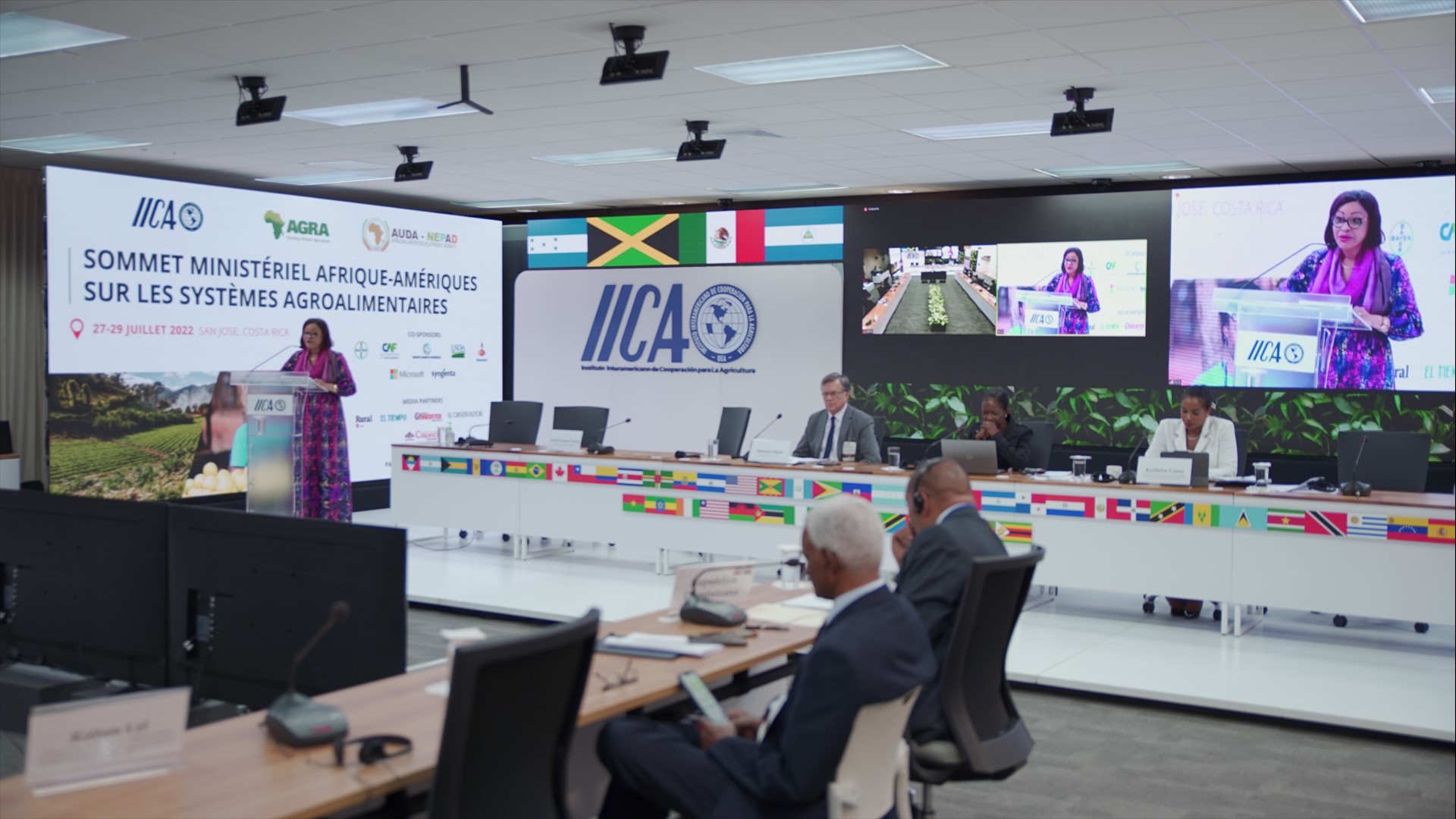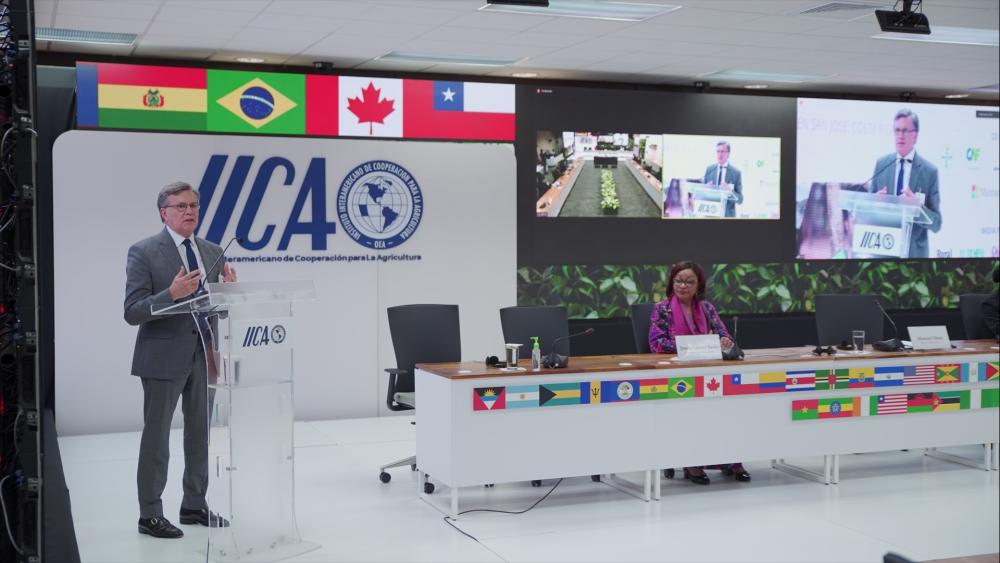The States tasked three organizations the IICA, AGRA and AUDA-NEPAD with preparing a roadmap and developing a common agenda for that purpose.

San Jose, 29 July 2022 (IICA). The highest-level agricultural authorities of some 40 countries have called for the creation of specific mechanisms to foster mutual learning and joint action between Africa and the Americas, based on science, technology, and innovation. They are convinced that cooperation between the two continents is a step in the right direction in transforming agri-food systems and addressing the causes of food insecurity, malnutrition, and environmental degradation.
The States tasked three organizations¾the Inter-American Institute for Cooperation on Agriculture (IICA), the Alliance for a Green Revolution in Africa (AGRA) and the African Union Development Agency–New Partnership for Africa’s Development (AUDA-NEPAD)¾with preparing a roadmap and developing a common agenda for that purpose.
The same three agencies organized the Africa-Americas Ministerial Summit on Agri-food Systems, which is being held in San Jose, Costa Rica, with the participation of ministers, deputy ministers, and experts in the areas of agriculture, environment, and science and technology from the two regions.
The agricultural authorities specified a number of topics for inclusion in the roadmap aimed at identifying opportunities for international cooperation and tackling food insecurity. Among them were the institutionalization of the forum for inter-continental dialogue and the creation of networks, particularly on bio-inputs, and an innovation hub.
Other areas that will be addressed include the promotion of evidence-based good practices, with a focus on soils to address issues such as ecosystem-based adaptation, soil restoration, the intensification of land use, and the reduction of land degradation, as well as soil health and increased carbon sequestration.
“The roadmap must include the adoption of policies and actions, down to the local level, because our farmers are looking to us for support. The African agricultural structure consists basically of family farmers. That is why I tell our leaders, our ministers here, that if we want to transform agriculture, we must include this highly vulnerable group, made up of those who actually supply our food, mainly women,” said Josefa Leonel Sacko, the African Union’s Commissioner for Agriculture, Rural Development, the Blue Economy, and Environmental Sustainability.

IICA Director General Manuel Otero also addressed the ministers and highlighted three areas: “All aspects of the transformation of agri-food systems were addressed at the Summit, but I want to emphasize three¾innovation, youth, and sustainability¾because our agri-food systems must be sustainable.”
Otero stressed that the Institute’s initiatives were also available to African countries. “I am referring to the Policy Observatory, where we discuss developments around the world; the Living Soils program led by scientist Rattan Lal, which is devoted to restoring soil health, and for which we have the support of the private sector; and the Digital Agriculture program led by Michael Kremer, winner of the 2019 Nobel prize for economics, based on things that have been achieved in Africa and Latin America,” the IICA Director General added.
Both Lal and Kremer participated in the summit and spoke with ministers, representatives of the private sector and leaders of cooperation agencies about the role that Africa and the Americas can play in eradicating hunger and preserving the environment.
IICA, AGRA and AUDA-NEPAD were also tasked with exploring agreements for the design of operational and financial mechanisms to leverage resources for South-South, North-South and Triangular cooperation, and for interagency collaboration and public-private partnerships.
They will also be promoting measures that facilitate transparent and distortion-free international agri-food trade.
“We really need to ensure that all stakeholders, farmers and non-state organizations, join us in this movement, to make us stronger. Africa and the Americas can feed the world because there is a lot of potential in the two regions if we work together,” added Commissioner Sacko of the African Union.
The IICA Director General said his organization will lobby for the participation of ministers of agriculture of the Americas and the Institute itself in the meeting of the Green Revolution in Africa Forum (AGRF), which will be held in September this year in Rwanda.
In fact, one of the tasks of the three cooperation agencies is to present to the African forum recommendations for joint action arising out of the summit in San Jose.
“We want to be better connected with you, we want to learn from you, and we want to build a new way forward together because that is what the world needs,” Otero said.
The Africa-Americas Ministerial Summit also highlighted examples of alliances with the private sector that underpin cooperation, especially in the areas of financing, innovation, and science and technology. Involving organizations from that sector is one of the actions included in the roadmap with which the international agencies were tasked.
The meeting in San Jose was supported by Bayer, CAF-Development Bank of Latin America, the World Bank Group, Microsoft, Rabobank, Syngenta, and the U.S. Department of Agriculture (USDA).
More information:
Institutional Communication Division











